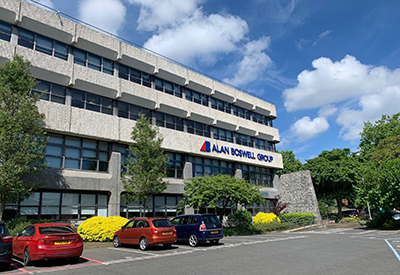Cambridge Cleantech – the future of technology

We catch up with Martin Garratt of Cambridge Cleantech to hear about how Cambridge Cleantech supports their members and the future of Clean Technology.
Could you tell us a bit more about Cambridge Cleantech and how it started?
“Essentially Cambridge Cleantech is a member’s network designed to bring innovators, corporates, academics and investors together to help build a more sustainable future.
“We started ten years ago this year and are celebrating our anniversary in October. Prior to setting up Cambridge Cleantech I used to run the Greater Cambridge Partnership for ten years, however the incoming coalition government at the time announced that they were closing the regional development agencies which were our principal form of funding. So, we had a few months to decide what to do next. Coincidentally we had just produced a report on the cleantech sector for the region and had recommended setting up a business membership network. So, we tested the appetite and as it seemed very strong, decided to take it forward. We closed the Greater Cambridge Partnership and pivoted into Cambridge Cleantech essentially.”
That was a great move! And what’s your background Martin, before the Greater Cambridge Partnership?

“I’m a town planner by training, I studied at the University of Manchester and focused on environmental issues as part of one of my degrees. I worked for IBM in their estates department and benefitted from some first-rate training from the IBM in-house marketing and sales teams. I then went on to set up one of the UK’s first City Centre management schemes in Nottingham to bolster the image, marketing, environment, and the accessibility of the town centre. I did that for four years and then Boots, who are based in Nottingham, asked me to go and work for them. l then came out to Cambridge to set up the Greater Cambridge Partnership, which was a broader economic partnership for the sub region.”
So, Cambridge Cleantech is a great network for supporting start-ups and really connecting the community. What advice would you give start-ups in their infancy?
“It would be to have absolute clarity about your product and how it can benefit your customers and the planet. When we hold Cleantech venture days we provide start-ups with the five criteria that the judges will use to score them. The first one is to ensure there is clarity about the stage of growth the business is at and what level of funding is being sought. Secondly is to review if the business is a viable, sustainable and defendable technology? Also, whether it is scalable? Can it respond to market demand? The third thing is about the business model; whether it’s commercially viable and whether it has been researched and fully costed. The fourth is about the team; is the team capable of developing this as a viable business? The last one is its contribution to the environment. Is it likely to have a broader benefit to society? From these results comes the clearest and most compelling advice we can give.”
And what else do the venture days entail? Once somebody meets those criteria what can they expect?
“Well, we normally have over 100 applications and the judging panel have to whittle those down to the 24 most investment ready. The pitching session on the day is a bit like Dragon’s Den, so it’s good fun. In the days when you could have physical events we would start with a keynote speech then you immediately go to five, five-minute pitches with a quick-fire Q&A to each candidate. They don’t have a pile of cash on the armchair, unfortunately, but will make a note of companies they are interested in.
“This sequence is then repeated throughout the day and the attending investors will decide which ones they want to invest in. All in all, it has been a big success!”
So it’s a bit like matchmaking, trying to get these companies out in front of the right investors?
“Yes! We had a lovely email from the chief executive of one of the pitching companies Airex who said the event was fantastic. She explained that there was a whole raft of new potential investors in the room and that they had had a good chance to present their case and network. Barclays had met with them, completed some due diligence and decided to fund them. One of the things we did for companies like Airex, who are pitching digitally for the first time, was specialised training on how to create an impressive pitch, virtually.”
“We also make an effort to ensure that all our applications and the companies pitching are as balanced as can be. For example, eight out of 24 companies at the last event were led by women founders.”
 What are the biggest challenges facing the Cleantech community at the moment?
What are the biggest challenges facing the Cleantech community at the moment?
“Access to finance is the most difficult. There are plenty of companies looking for finance and there are also plenty of financiers who have the money but say they don’t have the right proposition. That’s why we instigated the cleantech venture day format, to bring the two sides together.
“The other big issue for the innovators is getting access to the corporates, because they don’t know which door to knock on. One of our programmes is called ‘Scale Up’, where we introduce corporates hungry for innovation. We have about 70 companies, like Arm Technology and Johnson Matthey for example, that are actively looking for open innovation, for ideas to improve their own products or services, or to add what a small company can bring to their menu. Those have been very successful because we sort of act as broker and, to an extent, gatekeeper.”
There is also a lot of Cleantech work going on in Oxford. What do you think makes Cambridge and Oxford so special for the science and technology community?
“I think it’s the business support ecosystem. Cambridge and Oxford are both relatively quiet places, but that’s an advantage. There are maybe 100 people in the Cleantech business community, in Cambridge, and most of us know each other. Therefore, wherever and whatever the entry point is that person will be passed on to the most appropriate contact. We have that mix of academic and entrepreneurial spirit both within, and outside, the universities, as well as the investors and the innovators. We also have a progressive local government. You add all that together and it just works effectively because you’ve got the right ingredients.”
I suppose access to talent as well.
“Yes, the university is a great feeder. Cambridge is like a magnet and tends to attract and draw the best. They’ll come with their partners who are equally talented, and therefore the skills mix in Cambridge is world class.”
Cambridge is like a magnet and tends to attract and draw the best.
Looking forward, what are some of the most exciting clean technologies on the horizon, in your view?
“The Holy Grail, at the moment, for Cleantech is battery storage, or energy storage of some sort. We’re creating so much renewable energy through wind and solar that we almost don’t know what to do with it. Add to that, with the 2030 ban on petrol and diesel cars, everyone is going to be driving electric vehicles. How can we sort it? Could cars become battery storage for houses? You plug them in at night and the energy flows in either direction depending on the needs of tomorrow’s drive, or the needs of the household? How does that relate to the electricity supply industry?
“At the moment we are partnering with the Faraday Institute, Harwell Campus and Allia to develop a range of energy storage pilots in the UK as part of the STEPS project. There’s also quite a lot of ground breaking work happening right here in Cambridge, for example the Cambridge University spinout Nyobolt, which claims to have built the world’s fastest charging battery.”
How do you see these technologies shaping the future? Is there hope on the horizon?
“Overall, if we continue along this trend of implementing Cleantech products and services then there is hope that we can avert the climate crisis that we’re seeing at the moment. If we don’t take action now, we’re all going to be in trouble. It’s innovative technologies like the ones created by Cambridge Cleantech members that can provide the solution and hope for the future.”
With climate change an ever-growing threat, it’s comforting to know that Cambridge Cleantech and its members are working towards a more sustainable future for us all.
Alan Boswell Group have a specialist team providing insurance, risk management and financial services for emerging clean technologies, we also offer a free review and preferential rates for Cambridge Cleantech members. Find out more here or get in touch to see how we can help.




